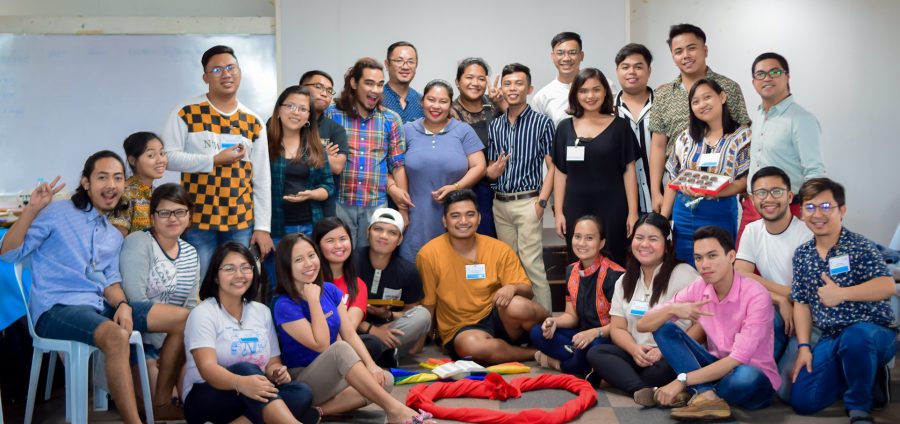Filipino ecumenical youth engage with HIV Advocacy and Gender Justice at CCA training

CEBU CITY, Philippines – 27 youth representatives from churches and related organizations, governmental, and nongovernmental sectors came together to discuss the rapid proliferation of HIV and AIDS across the country.
“Young People at the Center: An Ecumenical Youth Consultation on HIV and AIDS, Human Sexuality, and Gender Justice Advocacy” was the focus of the training held at UCCP Shalom Center in Cebu, Philippines.
“The epidemic of the human immunodeficiency syndrome and the culture that has rendered it so formidable makes this consultation a timely meeting of youth representatives from across the country,” said Vaughn Alviar, chairperson of Kalipunan ng Kristiyanong Kapataan sa Pilipinas or Philippine Ecumenical Youth Council (KKKP).
“Government data reveals that, from 1 in 2008, the number of people diagnosed with HIV in the Philippines every day climbed to 36 in 2019. We now have the fastest-growing HIV epidemic in Asia-Pacific,” noted Alviar, a member of Iglesia Filipina Independiente. “We must address HIV as a public health concern, but many turn moralistic about it and wrap it in superstition, misinformation, and stigma. This can be rooted in the combination of conservatism and patriarchy; sexuality is a taboo and gender minorities are second-class citizens.”
All churches must embrace people living with HIV and gender minorities as “the least,” noted Iglesia Evangelica Metodista En Las Islas Filipinas youth president Jon Dave Angeles, reflecting upon the passage based on the Judgment of the Nations from the Gospel according to Matthew. “We are sheep and goats who will be judged not simply according to ministries like singing, dancing, or administering inside the church but more so on how we treat the least.”
“The picture of Christ separating the sheep from the goats ought to get under our skin and compel us to consider the direction of our lives,” noted Blessy Grace de Leon of the United Methodist Church. “We are ‘bound in the bundle of the living under the care of the Lord your God’ (1 Samuel 25:29), and we cannot ignore the plight of human beings’ suffering, hunger, thirst, nakedness, homelessness, sickness, or imprisonment.”
“The rights of gender minorities are human rights,” said Alviar in a discussion on the realities of LGBTIQ+ Filipinos. He cited research revealing that they usually experience harassment and mocking at work; that the Philippines has the highest number of documented transphobic killings in Southeast Asia; and that only 11.2 percent of Filipinos reside in areas protected against discrimination.
Citing preliminary findings from a research on queer faith, Ateneo De Manila University Development Studies researcher Robbin Dagle said: “Homo-negativity is present across all denominations, from affirming to rejecting… Is there hope? Most young people who participated so far say there is: when the older generations pass on.”
He then encouraged participants to establish brave — not just safe — spaces: “In safe spaces, we tend to not speak our minds, thinking we might offend people. We must create spaces where everybody is brave enough to express their beliefs without being judged, so that we can talk about them.”
Rodel Aquiat of UCCP reiterated the importance of involving not just gender minorities in the discussions. He said advocates must also forge alliances with straight (cisgender, heterosexual) individuals, so the wider public can be engaged and so that inclusion becomes a work of all.
“My senses were indulged,” said French Michelle Israel in summing up her learnings at the closing worship. “I saw the diversity among us, I heard ideas and stories; I tasted the sweetness of our fellowship; I smelled the foulness of discrimination and touched our unity.” Participants agreed that stigma must be battled with protracted education on HIV, especially at the grassroots level.
CCA-ATCHAA used specialized tools to motivate the participants to persist in ministries relating to HIV, human sexuality, and gender justice. They also facilitated the action planning, during which the participants pledged to orient more people on the menace of HIV and AIDS.










